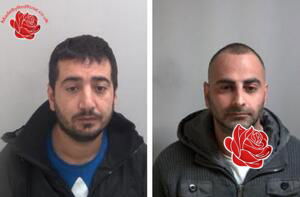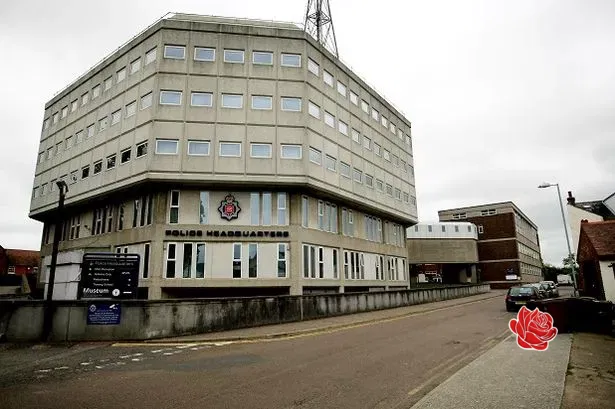Mohammed Rostami/Mehdi Zare's Social Media Accounts
Know a Social Media Account Linked to Mohammed Rostami/Mehdi Zare?
Want to add information? Log in to your account to contribute accounts and phone numbers.
SHOEBURY AND CHELMSFORD IRANIAN PIZZA SHOP GANG LEADERS MOHAMMED ROSTAMI AND MEHDI ZARE FACE DEPORTATION FEARS AFTER SEXUAL ABUSE CASE
In a disturbing case that has sent shockwaves through the communities of Chelmsford and Shoebury, two Iranian men, Mohammed Rostami and Mehdi Zare, have been convicted of heinous crimes involving the sexual exploitation of a 14-year-old girl. The case, which unfolded over several years, revealed a pattern of grooming, drug abuse, and sexual exploitation carried out by the men, who worked as pizza shop employees in their respective towns.Mohammed Rostami, aged 37 and residing at The Renown in Shoebury, and Mehdi Zare, aged 32 from Lupin Drive in Chelmsford, were found guilty after an extensive eight-week trial at Chelmsford Crown Court. The court heard how both men had engaged in a prolonged campaign of abuse against the young girl, which included supplying her with drugs and coercing her into sexual acts. The jury also convicted Amin Kaveh, 35, also of The Renown in Shoebury, who was sentenced to ten years for his role in supplying drugs to the victim, as well as other teenagers and a young woman, and for orchestrating a broader drugs conspiracy across Essex.
Judge Patricia Lynch, presiding over the case, described the crimes as “abhorrent” and condemned the defendants for their treatment of the victim, stating that they “treated her like a piece of meat.” She emphasized the vulnerability of the girl, noting that ten years prior, her troubled childhood would have rendered her voiceless and unprotected. The judge highlighted the particularly disturbing nature of the crimes, which involved grooming with drugs, inducing cocaine addiction, and pimping the girl out to other men with similar predilections.
During the sentencing, the court heard from the victim, who expressed her desire to move on with her life and protect others from experiencing similar trauma. She stated, “By the time they get out I want for me and my family to have moved on with our lives. I don’t want another child to go through what I and my family have gone through for the last ten years. After doing something like this, how can they call themselves human beings?”
The court found Rostami guilty of two counts of sexual activity with a child, one count of causing or inciting sexual exploitation of a child, and charges related to supplying controlled drugs of both Class A and B. However, the jury was unable to reach a verdict on one count of rape, which will now remain on file. Zare was convicted of one count of sexual activity with a child, facilitating sexual exploitation, and supplying Class A and B drugs, but was acquitted of two similar counts.
In addition, Kaveh was convicted of supplying cannabis and admitted to two other drug supply charges. He was cleared of sexual assault, rape, and charges related to causing or inciting prostitution for gain, including a case involving a 16-year-old girl, which was dismissed during the trial.
Addressing the court, Judge Lynch condemned Zare for his role, stating, “Although you didn’t groom her and get her addicted, you were aware that she had been groomed and you were aware that she was being used like a piece of meat. You dealt with her as a commodity, not a human being and not the child that she was.”
As the sentences were handed down, the victims and their families watched with relief. Rostami was sentenced to a total of 21 years—15 years for the sexual offences, plus an additional six years for his involvement in a separate drugs conspiracy, with the sentences to run consecutively. Zare received a 12-year sentence for his crimes, while Kaveh was sentenced to one year for drug offences, with a previous conviction adding a total of ten years for conspiracy to supply mephedrone.
The case has raised serious concerns about the potential deportation of the offenders back to Iran, where, as noted by the defense, the men face the risk of execution due to their criminal records. The defense argued that deportation proceedings had begun following Zare’s 2015 drug conviction, and that the men’s future in Iran would be perilous, given the severity of their crimes and the country’s strict laws against such offences.



















